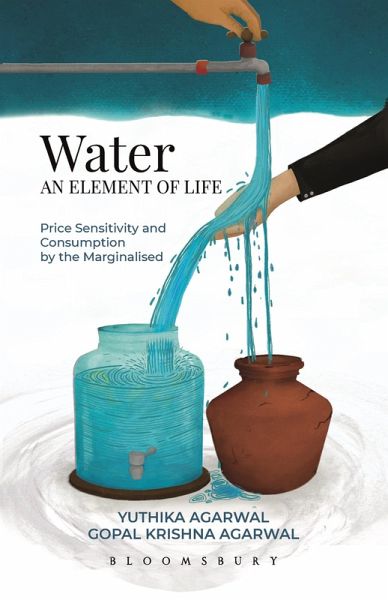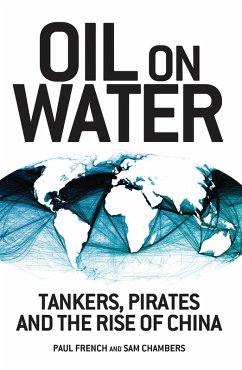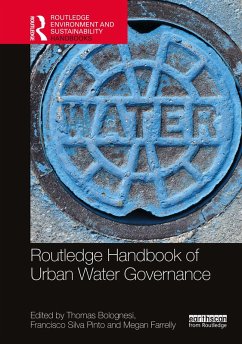
Water an Element of Life (eBook, ePUB)
Price Sensitivity and Consumption by Marginalised

PAYBACK Punkte
4 °P sammeln!
This book discusses, the issues with respect to consumption of water by the marginalised (poor) sections of the society and the efficacy of using pricing policy as a tool for overall demand management of household water. It includes a case study based on the survey of the municipal water supply in Delhi. It covers water scenario at the national level, suggesting regulatory framework and reforms for the efficient urban water management in India. There are several conflicts around the water resource such as - equitable access; competing uses; issue of quality and availability; commercialisation ...
This book discusses, the issues with respect to consumption of water by the marginalised (poor) sections of the society and the efficacy of using pricing policy as a tool for overall demand management of household water. It includes a case study based on the survey of the municipal water supply in Delhi. It covers water scenario at the national level, suggesting regulatory framework and reforms for the efficient urban water management in India. There are several conflicts around the water resource such as - equitable access; competing uses; issue of quality and availability; commercialisation and privatisation, the book provides an outline for their resolution. The authors examine urban water management in relation to - reach of municipal water supply to households; price sensitivity of different income groups; consumption pattern amongst various sources; conservation efforts and public private partnership.













